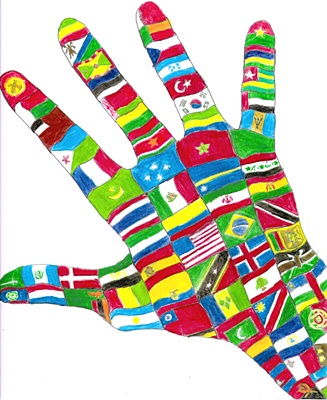All Nonfiction
- Bullying
- Books
- Academic
- Author Interviews
- Celebrity interviews
- College Articles
- College Essays
- Educator of the Year
- Heroes
- Interviews
- Memoir
- Personal Experience
- Sports
- Travel & Culture
All Opinions
- Bullying
- Current Events / Politics
- Discrimination
- Drugs / Alcohol / Smoking
- Entertainment / Celebrities
- Environment
- Love / Relationships
- Movies / Music / TV
- Pop Culture / Trends
- School / College
- Social Issues / Civics
- Spirituality / Religion
- Sports / Hobbies
All Hot Topics
- Bullying
- Community Service
- Environment
- Health
- Letters to the Editor
- Pride & Prejudice
- What Matters
- Back
Summer Guide
- Program Links
- Program Reviews
- Back
College Guide
- College Links
- College Reviews
- College Essays
- College Articles
- Back
Are you gonna be a Bystander or an Intervenor ?
In the present day society, seeing another person being hurt and doing nothing is fairly prevalent yet rarely acknowledged as a problem. It is unfortunate that due to the overwhelming presence of social evils in our society, only extreme incidences like rioting, rape, murder, robbery and physical violence are condemned. Even for such situations there is hardly any response by an average bystander. Largely it is due to the conditioning of our minds by the materialistic world we live in and which often shows situations where bystanders are mute spectators and the only one who comes forward to help is the extremely well-built and an ace fighter – the “hero”. If somebody other than the hero comes forth, he will be beaten to pulp or die a tragic death. Due to this, whenever somebody tries to intervene on seeing atrocities or injustice, the most common refrain is, “Don’t be a hero”. Another deterrent would be getting involved in a ‘legal tangle’ with the authorities and police. In today’s world sometimes it is not that difficult for people to get away with committing the most heinous crime without the fear of punishment for their deeds. This was all summed up in an incident which happened in the booming metropolis of Mumbai. On October 20, 2011 two young men -- Keenan Santos and Reuben Fernandez -- were brutally killed by a group of hooligans and their supporters after the duo protested the rowdies' misbehavior towards their female friends and tried to defend themselves from attacks by the enraged hooligans. The revolting aspect of the incident was the utterly shameful, shocking and inhuman inaction of a group of nearly 40 bystanders, who watched the two boys being surrounded and murdered by the hooligans without any attempt to go to their rescue. They watched as if they were watching a street play. It is understandable -- but not excusable -- if there were only one or two bystanders and they were afraid of intervening. But there were nearly 40 of them.
There were so many things they could have done. They could have raised an alarm and collected more people. They could have intervened physically. But they did nothing. They just watched -- not in horror or shock -- but perhaps just with disinterested curiosity. Would I have intervened if I were there? Probably Yes. Hesitantly though; but yes. Because on one side is the argument which I have earlier made while on the other side are teachings of our religions and the father of our nation, Mahatma Gandhi. I am always reminded of something he said, “Whatever you do will be insignificant, but it is very important that you do it.” I am yet to face a scenario where I am threatened with grievous bodily harm and physical violence. But there have been many instances in my interaction with my peers where I witness verbal intimidation. It starts with the teasing of a classmate who is weak either in his social skills or learning abilities. It becomes the favorite pastime of the majority to tease them at every instance and exclude them from activities. This spills over to the playground where the physically weak ones are left out from participating in the break-time games. Initially it was very tempting to be a part of the majority as it makes one popular. But then my conscience started hurting, a lot. Though I didn’t have the ability or should I say courage to stand up and deal with it head on, I devised innovative methods using tact, humor, and reverse psychology. I brought it up in discussion while we were in larger groups and I gauged who were the genuinely nice ones. This way I started associating with those friends who had their heart and mind in the right place. I made it a point to invite the weaker boys and not so pretty girls to my birthday party every year. I didn’t win too many friends for my actions. I don’t know if it made any difference. I know it has not revolutionized anything. But as Mahatma Gandhi said, “Be the change that you want to see in the world.”

Similar Articles
JOIN THE DISCUSSION
This article has 0 comments.
